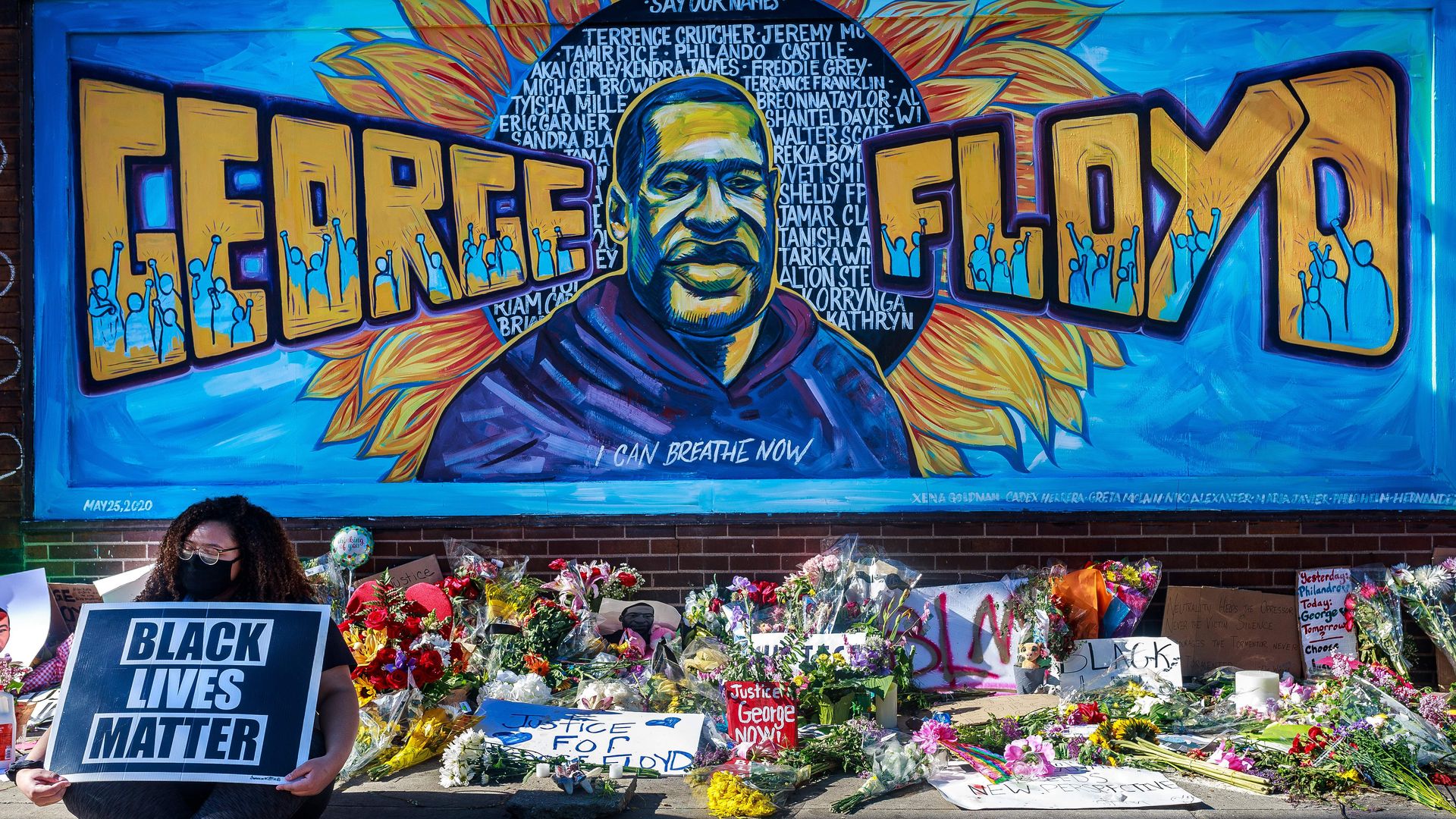Oct 4, 2021 - Politics & Policy
Texas board recommends posthumous pardon for George Floyd in 2004 case
Add Axios as your preferred source to
see more of our stories on Google.

Flowers, signs and balloons near a makeshift memorial to George Floyd near the spot where he died while in custody in Minneapolis. Photo: Kerem Yucel/AFP via Getty Images
